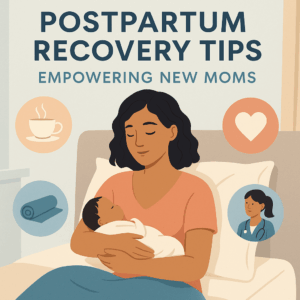Do You Need a Baby Schedule?

We are inherently creatures of habit, so it’s no surprise our babies can benefit greatly from our implementing a schedule into their daily lives.
Not everyone may agree on the importance of creating a schedule for infants and toddlers, but the statistics and experts still move to show that developing a routine for our children is in fact great for them.
Infants and young children can thrive from having some sort of schedule in place.
Scheduling gives them a sense of security and stability, it helps them to feel safe and secure in their surroundings when they have a general idea of what to expect.
This helps them to build an understanding of everyday events and start to learn what is expected of them in their day-to-day.
“Routines also help insulate your child from big, unexpected changes, says Dr. Karp. Sticking to a familiar pattern soothes kids in stressful situations, whether it’s a new sibling or a parent’s business trip. But that’s just the beginning. Read on to find out how basic rituals help your baby transform into a confident child.” – Dr Harvey Karp

For a new baby establishing a healthy routine is not the same as a routine put in place for a toddler who has more advanced development in sleep, their nervous system, and communication skills.
With an infant, we will base our structure/ schedule on developmental readiness, nutrition, and development of sleep. At this point that will be focused more on the development of the circadian rhythms. . “
Circadian rhythms are developed in three stages:
(1) at birth regulating temperature
(2) between six to eight weeks
(3) between eight to twelve weeks
( Creating Sweet Dreams, Rachelle Gerchkovich. pg. 11).
While establishing a schedule is important while they’re so young, this doesn’t mean you need to only feed your baby by the clock or try to establish a sure-fire bedtime right now. During this phase, newborns are too physically immature to follow hard-set patterns. It’s best to keep track of their daily intake and have an outline to follow each day with goals to meet three basic needs. Total calories, Total activity, and Total sleep for each day.
Feed on demand and let baby sleep when they need to sleep while being sure to interact with your baby, encourage tummy time( this can be on your chest) and take time outdoors in the daylight hours. This will further help them to understand the difference between their nights and days and after a few weeks you can begin implementing even more routine for them.
Key things to remember for a Baby Schedule
For the first week, your infant is going to be sleeping about 16-18 hours every day. (Doing the math…this means she’ll be awake for only 6-8 hours, and half of that is eating.)
By week four, she’ll adjust to sleeping around 15-17 hours a day (7-9 waking hours), and get up about 2-3 times during the night to eat.
For breastfeeding moms, you can expect her to eat every 1.5 hours (minimum) to 3 hours (maximum). Don’t allow her to go longer than 3 hours between feedings or your milk may suffer and she may not gain weight as needed.
For formula feeding parents, your baby will likely eat less often. Expect her to eat 2-3 ounces every three hours. Aim for one ounce per hour.
Around the age of 8 weeks it’s a good idea to begin introducing a nighttime routine to your little one.
This is a perfect age to begin gentle sleep training as well!
The importance of bedtime for your baby
Start with Bedtime: This will be a routine to follow every night at the same time. You will go into the sleep space change clothes, diaper, lights out, feed (sing/ read?) and in bed. Just like the morning you will use every communication possible to let your baby know it’s night time. You will want to keep this entire routine in the sleep space and between 30-45 minutes.
*This is the start of the night and morning is the stop. We want to create strong associations to the entering and leaving of the sleep space to when night time sleep begins and ends. Anything during the night hours will be expected to be very different then the day time hours.
Note: I do not include a bath with bedtime. This can be stimulating to infants as well as exhausting for parents to give a bath every night.
Your little one will inevitably continue to wake to feed every 2-4 hours at this time, but you are setting the right things in motion for them!
By three months of age you can begin incorporating daily rituals like playing with some of their favorite toys after the breakfast feeding, taking a stroll in the park in the afternoon and any other fun activities you enjoy doing with baby. This not only helps with their understanding of schedule and routine but it very important for their early brain development and reaching certain milestones!
Keeping note of when your baby does what throughout the day will help you to understand your babies needs as well as how to better incorporate method to the inconsistency that may be there.
When your little one is six to seven months of age you will feel so much more at ease with your routine and schedule with baby!
By this time they have ideally established a healthy routine for both day and nights, and are most likely sleeping long stretches in the evening and awake much longer during the day.
Always remember to be flexible as needed with the schedule as life doesn’t always flow seamlessly like we expect it to, day in and day out.
Traveling and time change may require some adjusting as well as periods when your baby may be going through sleep regressions.
Getting help with your baby schedule
If you ever find yourself feeling overwhelmed or wondering why something just doesn’t seem to be working for you, reach out to a local Newborn Care Specialist in your area- or Sleep Training Consultant to get the help you need.
Night nannies and infant sleep trainers are an amazing aid to new families as they help during these critical times where implementing routine may just feel too overwhelming for parents that are already overtired.
Hiring a Newborn Care Specialist can help you and your family get on the right path to a happier and healthier routine! These professionals are experts at identifying problems, proposing changes for the best and ensuring parents and baby(s) needs are being met.
Don’t know a Newborn Care Specialist or Baby Sleep Trainer in your area?
We’d be happy to connect you! Just fill out this contact form.
Creating Sweet Dreams also offers Gentle Sleep Training Solutions to parents outside of the Denver, CO area.


